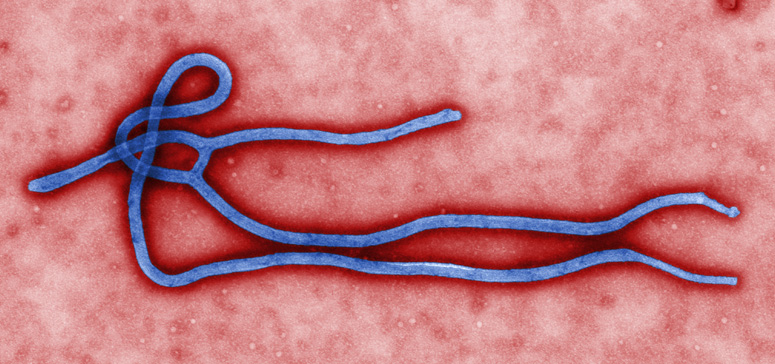After analyzing the blood of a survivor of the 2013-16 Ebola outbreak, a team of scientists from academia, industry and the government has discovered the first natural human antibodies that can neutralize and protect animals against all three major disease-causing ebolaviruses. The findings, published online in the journal Cell, could lead to the first broadly effective ebolavirus therapies and vaccines.
Ebolaviruses infections are usually severe, and often fatal. There are no vaccines or treatments approved by the Food and Drug Administration for treating these viruses. Some two dozen ebolavirus outbreaks have occurred since 1976, when the first outbreak was documented in villages along the Ebola River in the Democratic Republic of Congo (formerly Zaire). The largest outbreak in history - the 2013-16 Western African epidemic - caused more than 11,000 deaths and infected more than 29,000 people.
Monoclonal antibodies, which bind to and neutralize specific pathogens and toxins, have emerged as one of the most promising treatments for Ebola patients. A critical problem, however, is that most antibody therapies target just one specific ebolavirus. For example, the most advanced therapy- ZMappTM, a cocktail of three monoclonal antibodies - is specific for Ebola virus (formerly known as "Ebola Zaire"), but doesn't work against two related ebolaviruses (Sudan virus and Bundibugyo virus) that have also caused major outbreaks.
In earlier research, Dr. Bornholdt and Laura M. Walker, Ph.D., a senior scientist at Adimab, LLC, isolated 349 distinct monoclonal antibodies from a survivor of the 2013-16 Ebola epidemic. In the current study, the multi-institutional research team found that two of those 349 antibodies, known as ADI-15878 and ADI-15742, potently neutralized infection by all five known ebolaviruses in tissue culture. Both antibodies were able to protect animals (mice and ferrets) that had been exposed to a lethal dose of the three major agents: Ebola virus, Bundibugyo virus and Sudan virus.
Follow-up studies showed that the two antibodies isolated from the Ebola patient work by interfering with a critical step in the process by which ebolaviruses infect cells and then multiply inside them. The two antibodies encounter the virus while it's still in the bloodstream, and bind to glycoproteins (proteins to which carbohydrate chains are attached) that project from its surface. The virus, with its hitchhiking antibodies still bound to it, then attaches to a cell and enters the lysosome - a membrane-bound structure within the cell that is filled with enzymes for digesting foreign and cellular components. The virus must then fuse with the lysosome membrane to escape into the host cell's cytoplasm, where it can multiply. However, the antibodies prevent the virus from breaking out of its lysosomal "prison," thus stopping infection in its tracks.
